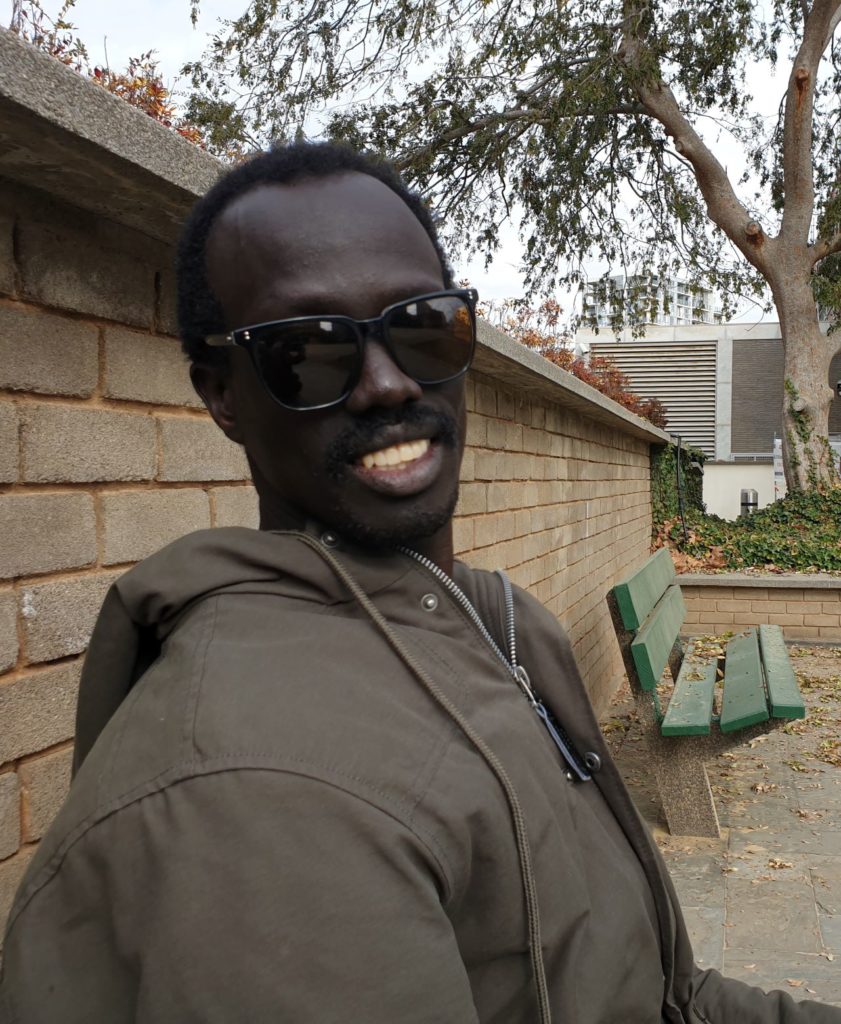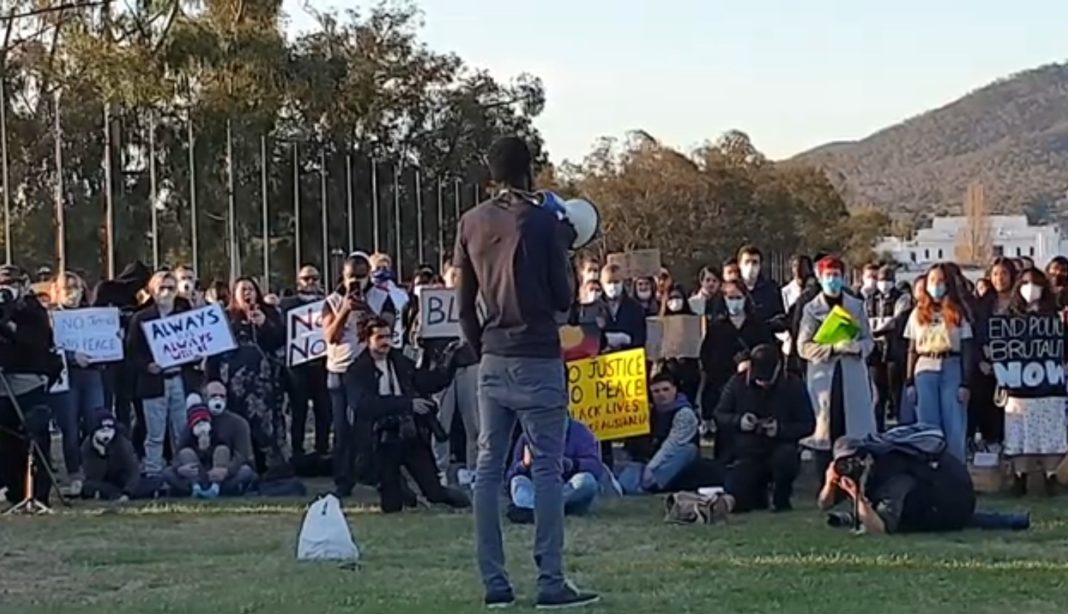Saturday morning small talk with Sudanese-Australian and organiser of Canberra’s Black Lives Matters protest (6 June), Dheiu Mading, includes the NSW police guarding colonial statues, the Prime Minister denying Indigenous slavery, and debating revolution versus reform – that’s all before the coffee has arrived.
It has been a big couple of weeks in race relations around the globe; the death of African-American man George Floyd at the hands of Minneapolis police ignited worldwide protests and a renewed push for racial justice for First Nations People, including Indigenous Australians.

Despite organising the #BLM protest, Dheiu doesn’t call himself an activist, just ‘your run of the mill’ outraged person.
When asked why, Dheiu is rhetorical.
“If anything, why did it take me so long?
“It’s about what sort of society I want to be part of, what society I want my nieces and nephews to grow up in.
“When they ask me what I did when these injustices were happening, I can at least say I did this. What change comes from it, I don’t know.
“But it’s not enough to tweet and like and share – even protesting isn’t enough.
“What happened in the States is one thing, but we have a history of Indigenous deaths in custody and I feel like that momentum needs to be galvanised and utilised to push for change.
“We have the focus of the 24-hour news cycle right now, and we need to use it to amplify our voice.”
Dheiu escaped Sudan (later South Sudan) with his mum, uncles, and siblings in 1992 when he was around six; they left the continent of Africa four years later and found a home in Australia.
He described this experience as the usual war-torn picture – gunfire, a lot of hunger and doing whatever your parents tell you to.
Despite this struggle, Dheiu said that on one hand he considers himself privileged.
“I came here as a refugee and we know what a bad day looks like, but whatever racism I have received here is nothing compared to what Indigenous people are copping in their own damn country.”
On the other hand, he is a black man living in Australia.
“Being black is difficult,” he said, “but being Indigenous is worse.”
Dheiu said there has been a lot of optimism and hope for change in his home country since its independence in 2011.
“You gotta be hopeful or you don’t make it out of there – out of a lot of destruction comes a lot of hope.”
He doesn’t feel the same hope here.
“Here there is too much complacency and racism is mainstream.
“They are not even listening to Indigenous people so how can you have hope in that environment.”
Despite a master’s in political science, Dheiu won’t be making the change from organiser to politician anytime soon, instead calling on white people to take up the cause.
“We need our allies to stand up and the ownership needs to be on white people.
“They need to look for creative ways to make a change and instead of liking and tweeting, pull down the system of injustice they benefit from and rebuild it in a way that’s more equitable.
“We can’t just keep barking about change from out here,” Dheiu said.



